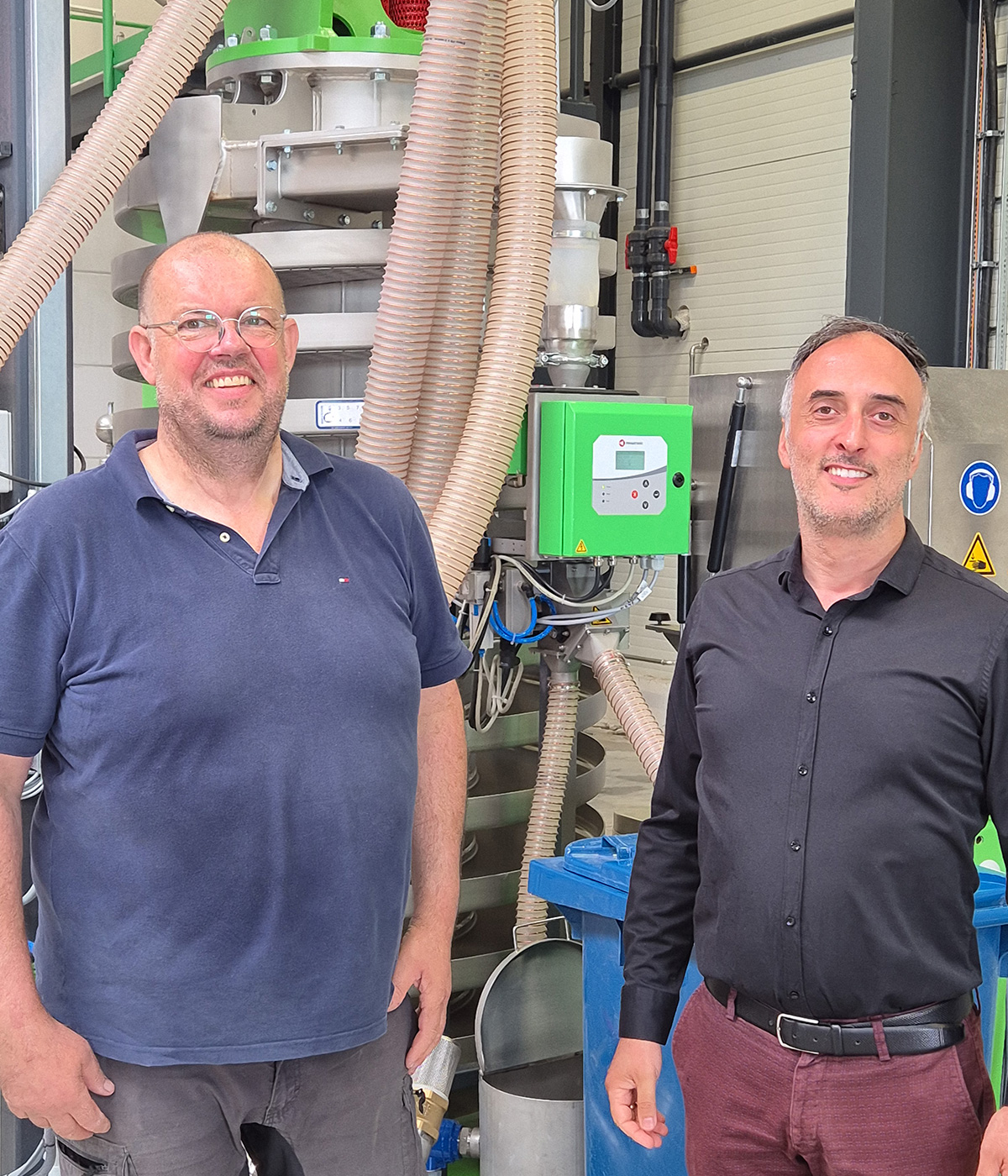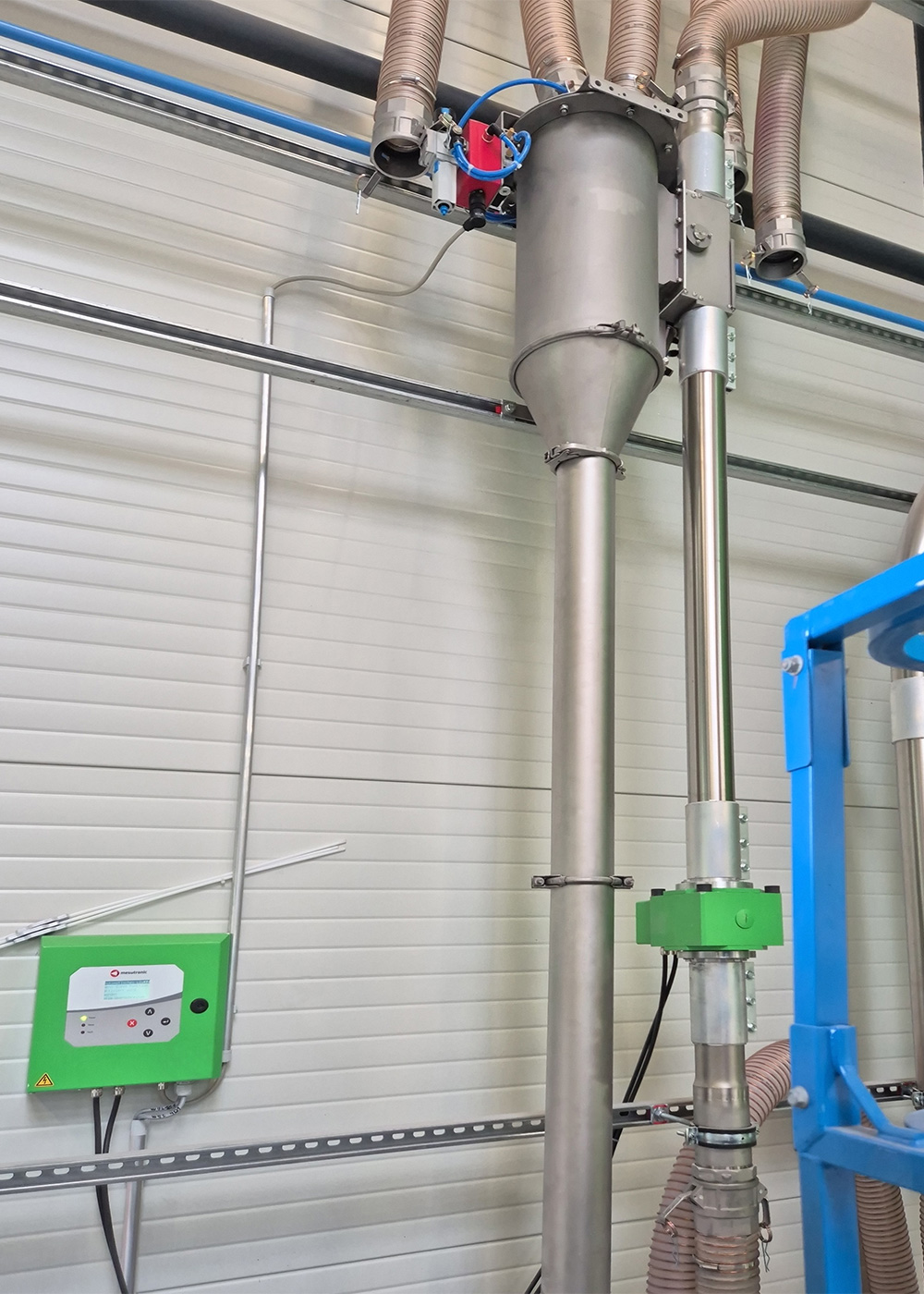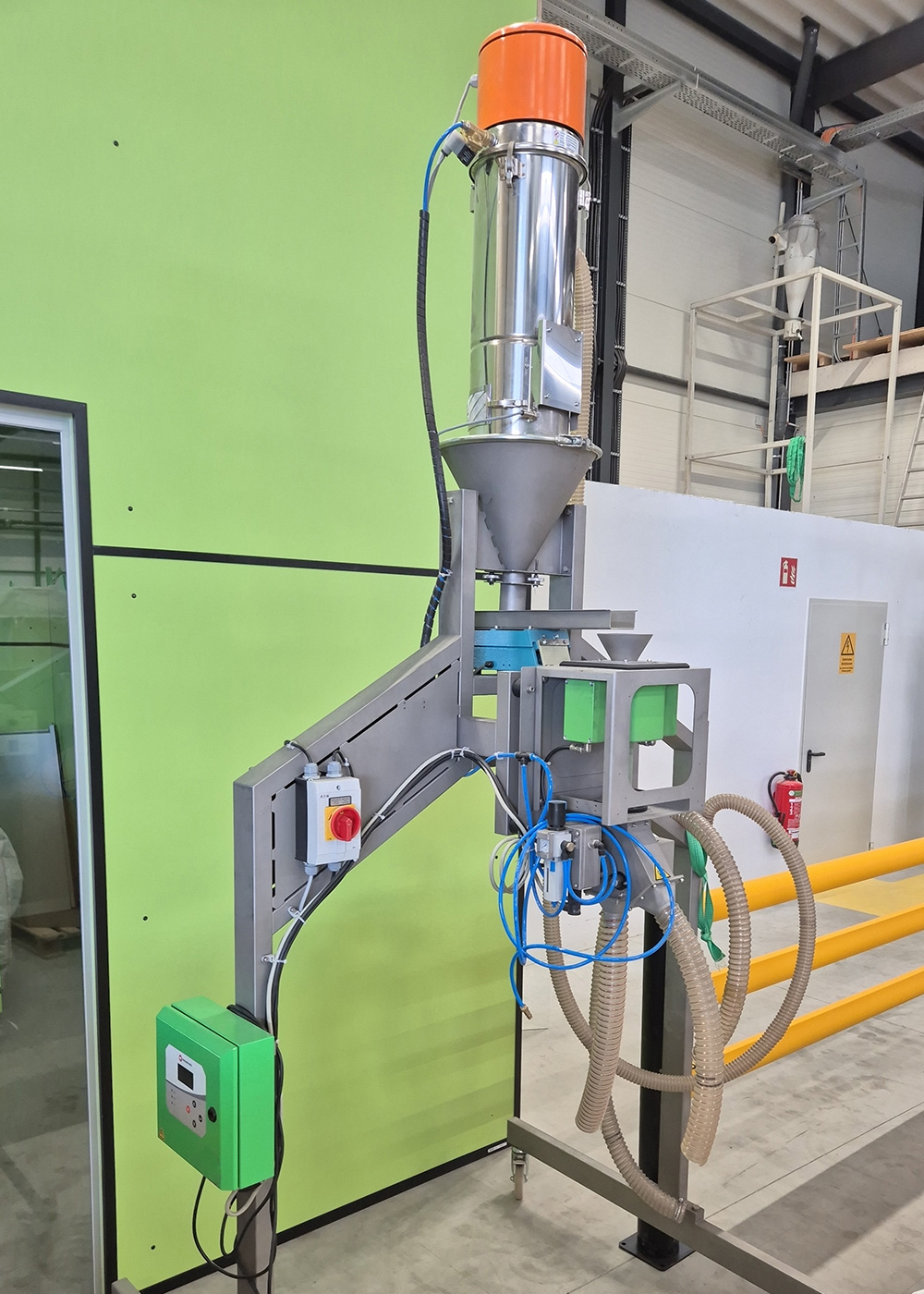Blog
Success Story:
KKR GmbH and Mesutronic
The Challenge
KKR GmbH, a leading recycling specialist for post-industrial plastics, faced a dual challenge: How can the purity of regranulates be maximized, while at the same time valuable regrind and granulate that is ejected along with metals is recovered back into the production process? The presence of metallic contaminants, particularly in incoming material, can damage downstream machinery, reduce the quality of the final product, and cause costly production downtimes.
The Mesutronic Solution
The solution for KKR GmbH came in the form of a comprehensive, multi-stage strategy developed by Mesutronic. A combination of highly efficient detection and separation systems was seamlessly integrated into the production process.
- The process begins with incoming goods inspection: A METRON 05 D tunnel detector is installed directly before grinding. It serves as the first protective layer, reliably detecting larger metal pieces in the incoming plastic scrap to prevent damage to the mills.
- After grinding, a P-TRON 05 FM separator is employed. This system, used in intermittently conveying pneumatic suction lines, ensures the fine separation of metals in the regrind. This second stage guarantees that even the smallest metal particles are removed before the sensitive extrusion process.
- At the end of the process, after regranulation, a QUICKTRON 05 A separator provides the final quality check. This system inspects the finished granulate for ultra-fine metal particles, ensuring absolute product purity – a decisive factor for KKR GmbH’s customers.
To maximize the longevity of the systems, the Mesutronic separators were supplied in a wear-reduced version. This is particularly important, as the abrasive properties of certain recycled materials can put heavy stress on the equipment.
The Sustainable Highlight: The Re-Separation-Unit
Another central element of the solution is the custom-built re-separation-unit designed for this customer. This stand-alone unit, independent from the main production line, is specifically engineered to recover valuable granulate or regrind that has been ejected together with metal contaminants.
Thanks to this unit, KKR GmbH was able to reduce the share of material originally classified as waste by up to 95%. This not only minimizes material loss to an absolute minimum, but also increases the overall efficiency and sustainability of the production process.
The new systems are also prepared for connection to process control technology via OPC/UA. This enables KKR GmbH to easily integrate them into the existing production network, monitor plant data in real time, and ensure smooth production control.
Conclusion
Through close collaboration with Mesutronic, KKR GmbH has been able not only to raise the quality of its regranulates to a new level, but also to make its production processes more sustainable and efficient. The targeted separation of metals and the efficient recovery of material secure the company’s competitiveness and strengthen KKR GmbH’s position as a pioneer in plastic recycling.


